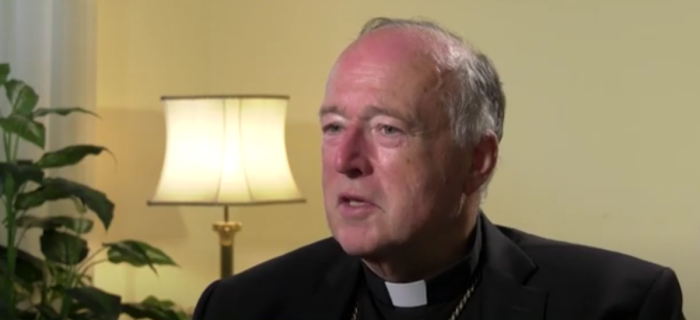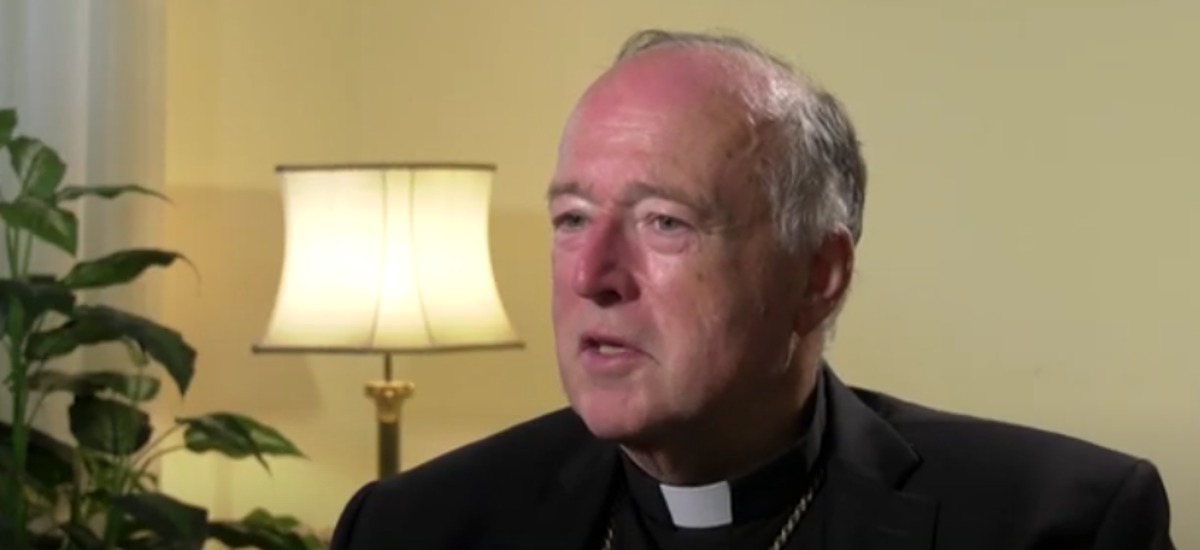
Pope Francis has appointed a supporter of allowing pro-abortion Catholic politicians to receive communion to lead the Roman Catholic archdiocese surrounding the United States capital.
In a statement Monday, the Vatican announced that Pope Francis selected Cardinal Robert McElroy of the Roman Catholic Diocese of San Diego to serve as the new Archbishop of the Roman Catholic Archdiocese of Washington, D.C. McElroy replaces the retiring Wilton Gregory.
McElroy has emerged as one of the most vocal supporters of allowing pro-choice Catholic politicians to receive communion despite their advocacy in favor of a position that directly contradicts church teaching.
In 2021, as the Catholic Church in the U.S. debated whether to adopt a national policy calling for withholding communion from Catholic politicians who support the legalization of abortion following the election of Catholic Democrat Joe Biden as president, McElroy forcefully denounced the idea as “very destructive.”
“I do not see how depriving the President of other political leaders of Eucharist based on their public policy stance can be interpreted in our society as anything other than the weaponization of the Eucharist,” he said in a statement to CRUX Now.
McElroy elaborated on his concerns in an op-ed for America, a Jesuit publication, published in May 2021.
“The proposal to exclude pro-choice Catholic political leaders from the Eucharist is the wrong step,” McElroy said. “It will bring tremendously destructive consequences — not because of what it says about abortion, but because of what it says about the Eucharist.”
“Fully half the Catholics in the United States will see [excluding pro-abortion political leaders from the Eucharist] as partisan in nature, and it will bring the terrible partisan divisions that have plagued our nation into the very act of worship that is intended by God to cause and signify our oneness,” he warned.
The U.S. Conference of Catholic Bishops stopped short of approving a document banning pro-choice Catholic politicians from receiving communion. Instead, they adopted a document declaring that members of the Catholic laity “who exercise some form of public authority have a special responsibility to form their consciences in accord with the Church’s faith and the moral law, and to serve the human family by upholding human life and dignity.”
“As Christians, we bear the responsibility to promote the life and dignity of the human person, and to love and to protect the most vulnerable in our midst: the unborn, migrants and refugees, victims of racial injustice, the sick and the elderly,” the document, approved in November 2021, asserted.
When the June 2021 decision to move forward with crafting a “Document on the Meaning of the Eucharist in the Life of the Church” prompted confusion as to whether or not it banned pro-abortion Catholic politicians from communion, the USCCB released a statement insisting that “the question of whether or not to deny any individual or groups Holy Communion was not on the ballot.”
Supporters of withholding communion to such politicians point to a 2004 letter sent by then-Cardinal Joseph Ratzinger, who would later become Pope Benedict XVI, to top church leaders in the U.S.
Noting that “the Church teaches the abortion or euthanasia is a grave sin,” he quoted from the Encyclical Letter Evangelium vitae, which teaches that “In the case of an intrinsically unjust law, such as a law permitting abortion or euthanasia, it is therefore never licit to obey it or to ‘take part in a propaganda campaign in favor of such a law or vote in favor of it.'”
“When a person’s formal cooperation becomes manifest (understood, in the case of a Catholic politician, as his consistently campaigning and voting for permissive abortion and euthanasia laws), his Pastor should meet with him, instructing him about the Church’s teaching, informing him that he is not to present himself for Holy Communion until he brings to an end the objective situation of sin, and warning him that he will otherwise be denied the Eucharist,” Ratzinger wrote.
Ratzinger added that “When ‘these precautionary measures have not had their effect …,’ and the person in question, with obstinate persistence, still presents himself to receive the Holy Eucharist, ‘the minister of Holy Communion must refuse to distribute it.'”
McElroy has also emerged as an outspoken progressive on LGBT issues.
In an interview with America published in 2016, McElroy described the Catechism of the Catholic Church’s characterization of homosexual acts as “intrinsically disordered” as “very destructive language that I think we should not use pastorally.”
Following the U.S. Supreme Court’s 2015 Obergefell v. Hodges decision that determined that same-sex marriage is a constitutional right, McElroy issued a statement acknowledging that “the Catholic Church, along with other faith traditions, teaches that the nature of marriage and the family cannot be redefined by society, as God is the author of marriage and its corresponding gift of co-creating human life.”
However, McElroy also called same-sex unions “loving and familial relationships which enrich the lives of so many gay men and women who are our sons and daughters, our sisters and brothers, and ultimately our fellow pilgrims on this earthly journey of life.”
Ryan Foley is a reporter for The Christian Post. He can be reached at: ryan.foley@christianpost.com








